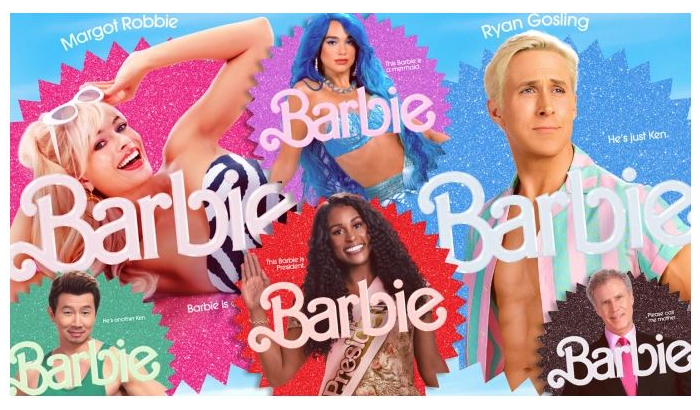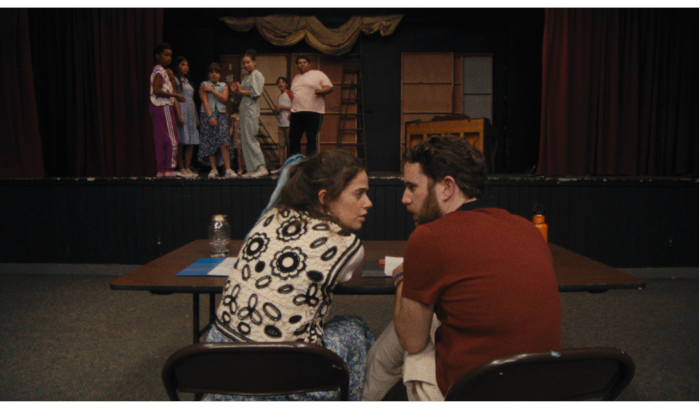“How should films consider misogyny? By imbuing their characters with human characteristics.”
(Note: spoilers ahead.)
The technological implosion of filmmaking is a real concern of mine, but sometimes I wish some films were written by an AI. By this I mean, some recent pictures have been so mind numbing in presentation, so lacking in personality, that I hope that no real person contributed to their making.
Such is the case with the recent Netflix release “Fair Play,” an erotic thriller about a couple whose relationship is pushed to the brink when the woman receives a promotion and the man does not. Chloe Domont’s directorial debut explores modern gender dynamics through the backdrop of a cut-throat hedge fund. The film is also boring, overwrought, and never bubbles into anything real.
But Domont’s production is not completely lifeless. In fact, its first act holds the promise of a much more interesting movie in exploring the unraveling of a supposedly progressive modern man. We meet Phoebe Dynevor’s Emily and Alden Ehrenreich’s Luke fooling around at a party. When they are stopped by the unexpected sight of period blood, Luke does not flinch.
As the bar is subterranean, his lack of disgust over period blood positions him as a “man written by women,” a phrase popularized on TikTok describing men unashamed of femininity. Watching this thin veneer of feminism disintegrate once Emily receives the promotion over him offers an interesting take on the ways modern misogyny persists.
After Emily receives the promotion, however, the film devolves into a paint by numbers “Sexist Things that Could Happen to a Woman™.” Luke openly begins to question Emily’s authority, her choice in clothing, and her abilities as an analyst. When his antics eventually get him fired from the hedge fund, his behavior escalates to a horrific extent. He verbally accosts Emily and eventually rapes her.
This sequence of events is realistic to the way misogyny escalates in real life, and is gut wrenching to watch. But the film does not do much more than this, as it never bothers to really develop Emily’s character. She does not have any flaws, or personality. She continuously tries to help Luke advance professionally even while he insults and demeans her. Sure, perhaps her love for Luke would provide a rational explanation for her passivity, but we the audience have met Luke and he is less interesting than an airport English muffin.
Emily only begins to really take action in the last quarter of the film, when she denies their relationship in order to keep her job and eventually non-fatally stabs him. But as the film is focused on portraying an objective reality of gendered violence, rather than a truthful portrayal of a woman being harassed by her own partner, Emily’s actions never carry any real weight. And thus, the full extent and complexity of the violence perpetrated against her is never really felt.
My main frustration with Domont’s film is that Emily and Luke do not act like real people. In its attempt to show Emily as the perfect victim of gendered violence, it only serves to dehumanize her. “Fair Play” is more intent on representing a known, mechanized possibility of gendered violence than its reality.
Domont’s film is one of many recent works I’ll call “Stock Photo Feminism,” which are films that consider themes of gender without making any real effort to flesh out their characters as real living people, and thus confuse their own messaging in the process. Believe it or not, misogyny affects women differently depending on who they are, where they live, and what they do. Dehumanizing female characters in order to make their pain more palatable to the audience is in itself an act of misogyny.
Consider Edgar Wright’s “Last Night in Soho,” which tried to explore how misogyny persists through the ages via the parallel lives of two women, but botched its own message with an ending that made one of the women a predator. Or Emerald Fennell’s “Promising Young Woman,” which muddles its messaging about the ways the police mishandles sexual assault cases by having the police bring the rapists to justice in the end.
More recent additions to this genre include Alex Garland’s “Men,” which was criticized for its surface level understanding of misogyny, and Mimi Cave’s 2022 “Fresh,” which could only go as far as equating men to cannibals and nothing further.
So how should films consider misogyny? By imbuing their characters with human characteristics. Justine Triet’s recent film “Anatomy of the Fall” does this brilliantly in how it explores the character of a woman trying to prove her innocence in her husband’s death.
Like “Fair Play,” “Anatomy of a Fall” is a workplace drama in that the husband and wife are writers, and their competition with one another provides an interesting lens through which to view misogyny. But unlike “Fair Play,” the woman at the center of the film is given the room to function like a real person, because she is allowed to be unlikeable. I cannot say more without spoiling it, but the film succeeds where “Fair Play” failed in allowing its female characters to simply exist as flawed people.
Do not get me wrong, gender dynamics are an interesting and necessary thing to explore on film. But for a film to be interesting, it must be rooted in personal truth, and I can find none in Domont’s. Perhaps an AI would have remembered to make its characters feel like people.
This article was produced for HorizonMass, the independent, student-driven, news outlet of the Boston Institute for Nonprofit Journalism, and is syndicated by BINJ’s MassWire news service.
Sabine Ollivier-Yamin is a HorizonMass associate editor and reporter. She is a Boston based arts and culture writer interested in the comedy beat. Ollivier-Yamin has written for the Daily Free Press, the Bunion, Gold Comedy, and the Core Journal. She is also a great pedestrian, she always pays attention to street signs.





